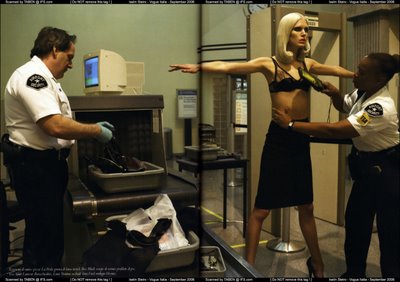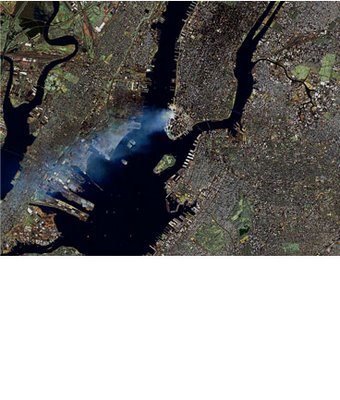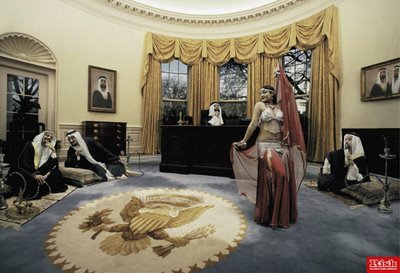well its the one week anniversary, you could say, of my return to the USA. A mixed feeling to be sure: I miss the much less complicated and expensive lifestyle I had cultivated in the Netherlands, but it fills me with a curious joy to see things anew, like the skyline of Boston rising up with a wide expanse of undulating riparian Cambridge to one side and the postcard-perfect array of Citgo sign, John Hancock and Prudential buildings providing contrast on the other side. Or the taste of a fresh-baked slice of pizza from Antonio's in Amherst, after you have clawed your way through the after-bar crowd. Or walking across the Charles at night, counting Smoots. Or sitting in the park by my house, watching the same river flow towards that bridge. Or...well you get the picture. If 'familiarity breeds contempt' then forgetting about the sights and sounds of familiar places can bring an ineffable romanticism upon their revival.
But apart from the breathtaking nostalgia, its been a long slow week trying to assemble the slot A into tab B of a new life here. Gainful employment in my desired field seems curiously out of my reach, with not a single response to my mailed inquiries. And lacking a motor vehicle has led me to become a hermit, lamenting my lack of a decent bicycle. As such, you'd think there would be a plethora of blogable topics to inspire my continued scrivening. Alas, my thoughts have remained so disoriented as of late that I have lack all but the most cursory remarks on the issues of the day.
One another anniversary, however, has struck me as highly worthy of note: the 40th anniversary of Star Trek. It was on September 8th, 1966 that the National Broadcasting Company first broadcast the adventures of Captain Kirk and co. Those first few years were rough ones for the franchise, which struggled with low ratings and some hit-or-miss plotlines. But when it was good, it was better than anything else on television at the time. Despite a limited budget, the show's special effects were superior to contemporary TV shows, its stories were often written by notable science fiction authors, and many of its production values – particularly costuming – were of high caliber.
For the longest time, I resisted Star Trek, deriding the franchise as campy and unscientifically sound, all the while hypocritically professing my undying affection for Star Wars, as if the two were mutually exclusive. Then came the prequel trilogy, when several Lucasian creative missteps led me to re-examine my earlier attitude. As Marshall McLuhan said: "I may be wrong, but I am never in doubt." Star Trek has ultimately changed the world with more substance than Star Wars ever will.
Some influences are easy to see, particularly the technical and visual aesthetic which has lead to clamshell cellphones and personal digital assistants from communicators and tricorders. Although most of the technology shown on-screen has yet to materialize, the terminology alone has enriched how we discuss technological breakthroughs, from 'beaming' something to a distant location to the Prime Directive as the name for a central ethical tenet to the space shuttle also bearing the name Enterprise. Fictional devices in the show have also been claimed as inspirations for actual devices like mobile phones (communicator), medical technology (hypospray and diagnostic imaging), and even elements of naval architecture (bridge).
Also much remarked upon was the multicultural before that was even a word composition of the cast with some of the first positive depictions of African-American and Asian people in positions of leadership and note, beyond just regulars Uhura and Sulu, but also in such roles as Federation scientist Richard Daystrom and, of course, as many an alien villain. Even though it was due to a telekinetic contrivance, Kirk and Uhura shared the first interracial kiss on television.
The Federation has an economy of abundance without money, enabled by advanced replicator technology. Labor, purchase, and sale are not necessary, as there is no scarcity to limit the satisfaction of one's material needs and wants. Greed and jealousy are thus greatly reduced. Characters often explain that the purpose of the people of the Federation is personal and universal beneficence. However, certain resources are still limited, such as those necessary to power warp and replicator technology, and interplanetary commerce is not uncommon.
Although people may deride 'Trekkies' as losers, their persistance in believing in a better more humanistic non-dystopic future is one of the greatest secular faiths in the world today, an ironic fact parodied by the Futurama episode in which Trekkism becomes an actual religion. The ability for people to become involved in creating and maintaining the mythos of Trek would lay the groundwork for today's fan-driven era of science fiction to the point where Klingon is the most widely spoken constructed language in the world. This fan-nutured canon of Trek was the progenitor of the wiki, a collaborative attempt at continuity of knowledge that almost single-handedly gave birth to 'slash fiction'(as in Kirk/Spock). Although not a money-maker in its original run, over the years Paramount has earned over $2.3 billion in TV revenues, $1 billion in film box office and over $4 billion in merchandise sales, according to a 1999 Salon article. This is from 10 different movies and 5 TV series (not counting a mid-70's animated version).
Each incarnation offered a different shading, a different layer of nuance to the overall mythos. The Next Generation brought us a very eighties revision, with uber-diplomat Captain Picard and calm and compassionate android Data. Unlike TOS – which often reflected a bold, interventionist American philosophy – TNG had a less aggressive and more socially liberal message. Deep Space Nine was the most weighty version of the Trek universe, unafraid to talk about topics like racism and religion by going beyond latex allegories and prosthetic conceits. DS9 stands apart from other Trek series for its lengthy serialized storytelling and conflict within the crew – things that Gene Roddenberry had forbidden in earlier Trek series. Only on DS9 would you find Federation operatives driven to commit genocide or have one series regular kill another in cold blood without comment (cf. Worf and Garak's murder of Weyouns 7 and 8, respectively) Voyager created many strong female characters, including the pragmatic Janeway and the former drone Seven of Nine, developing the metaphor of a starship crew as a family as they picked up new characters and showed that the Borg ain't so tough.
Finally, Enterprise went back to basics, providing a bridge between our post 9/11 world and that of James T. Kirk. But with technological change and tacit libertarianism more widely accepted as positive and the issues of both the Cold War and manned space exploration quaint, much of the original Trek message is superfluous. But the most important facet of Star Trek's appeal, that we can have high technology and remain human, that our problems can be solved without losing our soul, that still remains.
Here are, in no particular order, my ten favorite moments in Star Trek history:
"Living Witness" (VOY) The Doctor is reactivated 700 years after a controversial incident involving the Vaskan and Kyrian peoples. The actions of Voyager have become so misinterpreted that he and his former shipmates are branded war criminals. This proved to be rich in complexity with excellent performances by the crew playing their darker 'mirror' selves with relish. The final twist, that the Doctor's efforts at setting the record straight are another recreation, is all too perfect an end.
"City on the Edge of Forever" (TOS) Although time travel stories had been done to death by the time Enterprise made their central arc a Temporal Cold War, this Harlan Ellison written masterpiece is poignant and entertaining, with Joan Collins death making a devastating climax.
"Tapestry"(TNG) When a phaser blast apparently kills Picard he runs into Q in the afterlife, who gives him the chance to change history. However, it has unanticipated ramifications. This is probably Q's best exchange with Picard, the most mature and philosophical with a glimpse at a young brash Picard unknown to us and a meditation on how our mistakes are just as important in shaping us as our successes.
"Brothers" (TNG) This episode reunites Data with his father-creator Dr. Soong and evil twin Lore. It makes the list for its thrilling opening sequence in which Data comandeers the Enterprise, imitates Picard's voice perfectly and confounds the rest of the crew with a masterful use of forcefields.
"In the Pale Moonlight" (DS9) This show marked Sisko as distinctly different from other Federation do-gooders: amidst an agonizing low point in Starfleet's fortunes with its core worlds facing subjagation at the hands of the Dominion, he colludes with Garak to draw the neutral Romulans into the war using deception and assassination. When he erased his log at the end, it is a bit of a shock to the concience.
"Mirror, Mirror" (TOS)The infamous episode which first developed the idea of the parallel universe in which life is horrible: the Federation is an Empire; the crew tortures each other with 'agony booths', and Spock has a beard! This mirror universe would be developed further in a number of DS9 episodes which include a deliciously bisexual Kira Nerys and the one really good Enterprise episode.
"Author, Author" (VOY) The holographic Doctor and his nascent humanity provided Voyager with some of its most entertaining moments. This ostensibly light-hearted entry involving the Doctor's authorship of a controversial roman a clef holonovel has a fantastic point about authorship, attribution and self-determination. The final scene between two former EMHs toiling in a mine provides the perfect ending commentary to his overall character arc.
"Let That Be Your Last Battlefield" (TOS) Two aliens arrive on the Enterprise: a dissident seeking asylum and an operative charged with arresting him. Both have a face which is half black and half white. Their only difference is which half is black and which half is white. Few episodes have used a conceit to illustrate the problem of racism so succinctly, as both beam down to their ruined homeworld, where they are the last survivors of their mutual peoples.
"The Inner Light" (TNG) Picard is hit by a transmission from an alien probe which causes him to live out a full thirty years in thirty minutes. It is a very moving experience for someone we have come to know as dutiful and solitary. He had a wife, two children, and a home, everything he could not have as a Starship captain. He ends up an old man, a grandfather, perhaps dying along with the planet that may soon follow him due to its sun being on the verge of a tragic supernova. The wistful tune he plays on a metal flute is happy yet haunting. Thanks to the probe it is Picard who possesses the information no other living person has, information about the existence of an entire culture vanished from time.
"Darmok" (TNG) I've always had problems with the concept of the Universal Translator. Like the transporter, it's existence is there to smooth over storytelling and not let technical issues get in the way of a good time. That said, you'd think we's have more problems with the first time meeting a new race. This is exactly the issue explored in this episode where a race who speaks entirely in metaphor is encountered by our intrepid captain. This is Trek at its finest with an imaginative aliens, thoughtful philosophic dialogue and a compelling performance by the alien captain.
So happy birthday Star Trek...may you continue to live long and prosper.
Español | Deutsche | Français | Italiano | Português| Ch| Jp| Ko



















